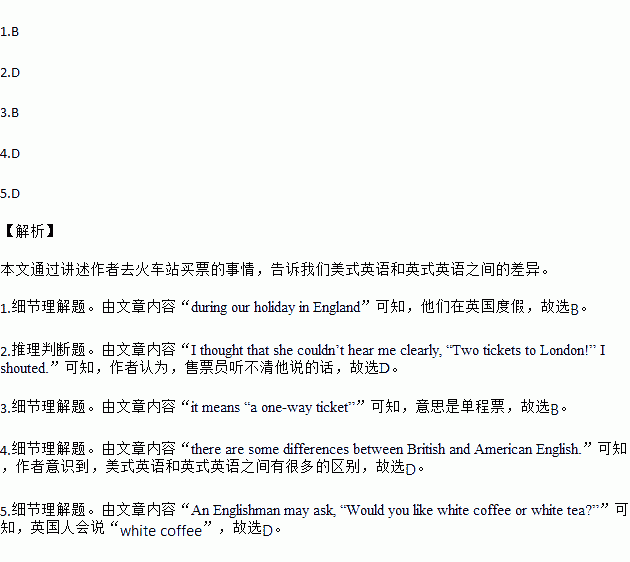题目内容
One day during our holiday in England, my friend and I went to the train station to buy tickets to London. As native (本土的) speakers of English, we did not expect to have problems in English.
“Two tickets to London, please.” I said to the ticket seller
“Single?” the ticket seller asked me.
I thought that she couldn’t hear me clearly, “Two tickets to London!” I shouted.
At that moment a man helped us. He said that “a single ticket” in Britain doesn’t mean “one ticket”, it means “a one-way ticket”.
My experience in England taught me that there are some differences between British and American English. An Englishman may ask, “Would you like white coffee or white tea?” And an American asks, “Would you like your coffee or tea with milk?” We can find some differences such as the British saying “He’s in hospital”, but the American saying “He’s in the hospital”. Americans write words like color without the “u” of the English colour.
How much do you know about the differences between British and American English?
1.The writer spent his holiday in_________.
A.America B.England C.China D.Canada
2.The writer thought the ticket seller was_________.
A.a good listener B.a careful listener C.a blind person D.bad at hearing
3.“A single ticket” in England means_________.
A.only one ticket
B.a one-way ticket
C.a ticket for two
D.a ticket for one
4.The writer learned in England that there are_________differences between British and American English.
A.few B.no C.two D.some
5.In Britain, if you want your coffee with milk, you should say, “I'd like_________.”
A.some milk B.black coffee C.white milk D.white coffee
 阅读快车系列答案
阅读快车系列答案
